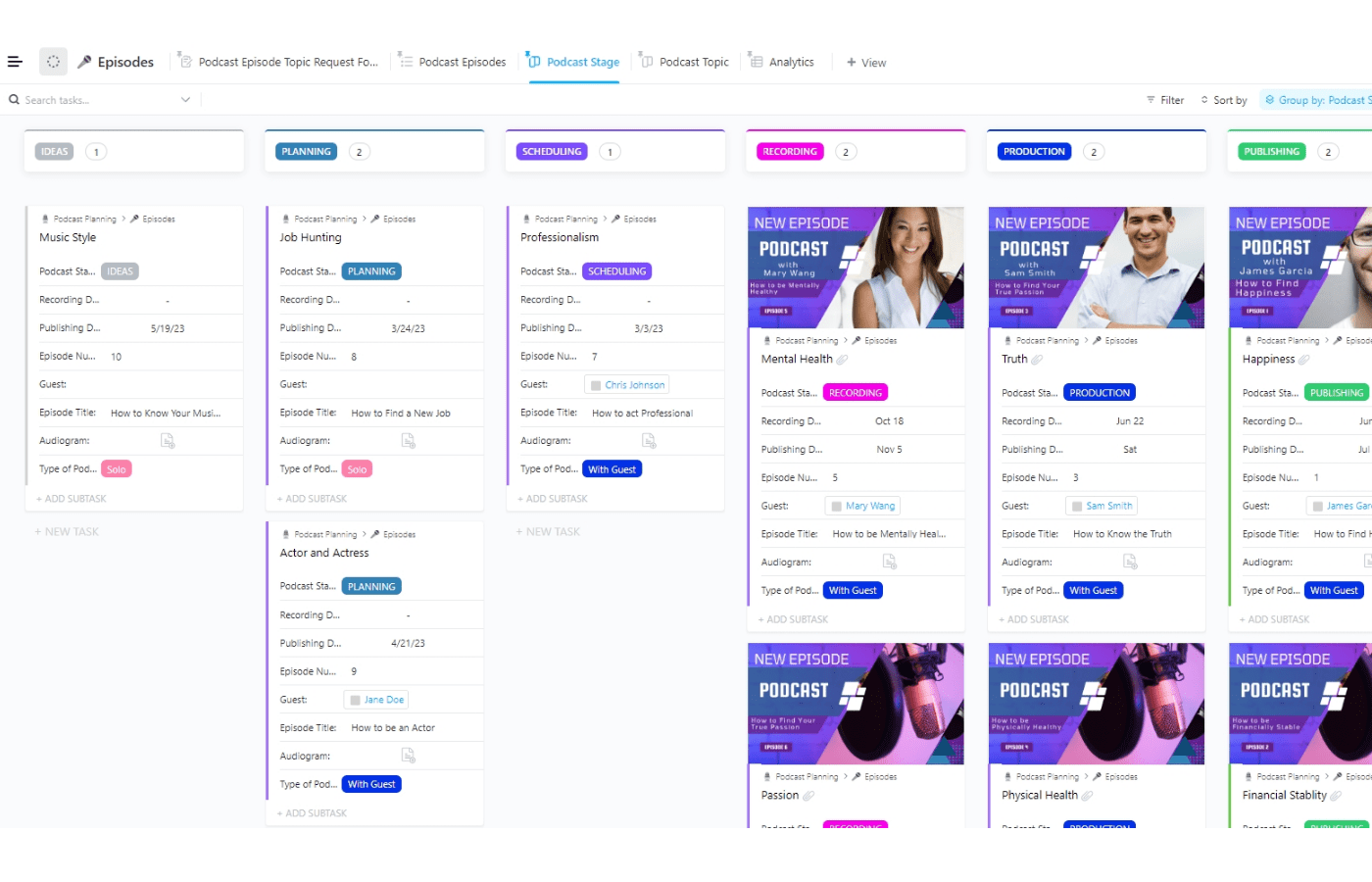KEY TAKEAWAY
The project executive is vital to the success of any project. It’s their duty to lead the entire team throughout the entire project lifecycle through strategic project planning, timeline management, resource management, and even hiring. Unlike the project manager, who plays a very hands-on, tactical role in the day-to-day activities that comprise the project as a whole, the project executive generally takes on a more consultative or supervisory role.
What is a Project Executive?
We’ve already outlined the typical career path of today’s project managers – but where do they go from there?
In many cases, the most talented project managers eventually transition to the role of project executive. Not only do they play a critical role in project identification, planning, and organization, but they’re also tasked with budget adherence, conflict management, risk analysis, and goal-setting.
Instead of focusing on daily tasks and activities, the project executive is generally concerned with the bigger picture. Whereas the responsibility of moving an individual project forward ultimately falls on the assigned project manager, the project executive is focused on ensuring the success of every project taken on by the team.
Top 5 Responsibilities of a Project Executive
While there are many different project executive responsibilities, most of their project executive job scope fit into one of the broader categories of general team leadership, planning and organization, hiring, resource allocation, or relationship-building.
Team Leadership
Perhaps above all else, project executives need to be skillful team leaders. This is a key trait for the role of project manager, too, so this one should come easy to most executives. However, it’s still an important responsibility that requires serious consideration. Some of the activities you’ll be performing while leading project teammates include:
- Prioritizing, delegating, and assigning tasks to individual team members
- Answering questions that may arise during the project lifecycle
- Monitoring, reviewing, and evaluating performance
There are other tasks involved in leading a project, including team-building, employee engagement, conflict resolution, and more.
Project Planning and Organization
Executives need to be stringent planners and organizers, too. Not only do project executives play a key role in brainstorming for new project ideas, choosing which projects to pursue, and coordinating project timelines, but they need to do so in a way that makes sense to the entire team. If a project executive plans a project poorly, or if they’re unorganized during the entire project lifecycle, then the entire team will suffer.
Hiring
Project executives also play a key role in recruitment, hiring, and interviewing. Since they’ll ultimately be responsible for directing and guiding new talent, it’s only natural that they’re so involved in the hiring process.
As such, project executives need to have an eye for talent and a knack for recognizing candidates that make good project teammates. Executives need to be intimately familiar with the onboarding processes of the company, and they also need to know what questions to ask during the initial interview phase. Finally, they need to demonstrate sound, fair, and ethical judgment when evaluating recruits.
Resource Allocation
Most project executives are responsible for allocating project resources as appropriate. This includes the allocation of project teammates, verification of project funding, and the procurement of tools, equipment, and raw materials.
Project executive responsibilities also include the optimization of project resources. Nearly anyone can estimate a project budget or the amount of time a project should take, but to do so accurately and consistently is another question entirely.
Relationship-Building
Finally, the project executive job scope includes building, developing, and maintaining relationships. Most project executives communicate with a variety of individuals on a daily basis, including:
- Project team members, including new hires, project managers, and other project executives
- Project stakeholders
- Organizational leaders
- Third-party vendors and suppliers
- External clients
Remember, the number of contacts you have to keep in contact with on a daily basis ultimately depends on the number of projects you’re managing, your industry, and your organizational needs.
5 Common Challenges Project Executives Face
If it already seems like project executives have a lot on their plate, you’re right. But the most skilled professionals also overcome numerous challenges on a daily basis. From managing scope creep to addressing skill gaps in the workforce and bolstering communications, project executives need to be able to tackle challenges as they arise.
Managing Scope Creep
Scope creep is one of the most common challenges faced not only by project executives but also by project managers, teammates, and stakeholders. Also known as feature creep or requirement creep, the term describes the act of a project’s requirements growing over the course of time.
For example, designing a product around a single key feature, only for a stakeholder to suggest four or five new features in the middle of the project lifecycle. Scope creep is a surefire way to increase the project’s timeline, budget, and resources, so it’s best to avoid it as much as possible.
Setting Goals and Objectives
Project executives need to set goals, milestones, and objectives for their team. They’re also responsible for verifying their completion and gauging overall performance. If your teammates are consistently failing to meet your goals, you might be setting your sights too high. Conversely, setting your milestones too low could affect the quality of the final project. It’s a fine line to balance, but it’s one that project executives face on a daily basis.
Working Within Budget Constraints
Project budgets are there for a reason. While there are certain instances where projects can exceed their allocated budgets, there are plenty of scenarios where they absolutely cannot. In the case of the latter, it’s vital that the project executive is able to make the project work with the resources they have. If not, the executive might need to refine their skills in resource allocation to make sure their estimates are closer to the mark.
Addressing Skill Gaps
This one can be challenging for project executives to address directly. Since the executive has no control over the available talent in the industry, or the candidates that apply to new job openings, there’s only so much one can do.
A skilled project executive, however, knows how to identify the skill gaps in their own team. More importantly, they proactively recommend additional training and development as needed. Not only does this help strengthen the skills of your project team, but it helps boost employee engagement, too.
Strengthening Communications
With so many potential teammates, stakeholders, and partners, the project executive needs to be personable and communicative. Moreover, they need to be familiar with the most popular methods of communication, including telephone, email, online chat, face-to-face meetings, and, in some cases, SMS messaging.
The best project executives also do their best to strengthen communications at every possible turn. If you’re currently struggling to communicate with your project teammates, stakeholders, or partners, consider introducing various team-building and employee engagement exercises to make the process a little bit easier for everyone involved.
Example Project Executive Job Description
Project executives are almost always in demand. If you’re currently looking for one to join your team, it’s important to craft a compelling project executive job description. The following example can easily be customized to meet your needs, so feel free to copy it for your own use.
[Company Name] is currently looking for skilled and experienced Project Executives to join our talent network. With an established presence in [Industry], you’ll be joining our dynamic project team in order to oversee and manage new projects, lead our hiring processes, and deliver exceptional results on a consistent basis.
Job Overview:
As our new Project Executive, you’ll be involved in the entire project lifecycle. You’ll play a critical role in brainstorming new projects, selecting which projects to pursue, and allocating resources to individual projects. Finally, you’ll report to key stakeholders, partners, and organizational leaders on a regular basis.
Primary Responsibilities:
You’ll be responsible for a variety of duties as our new Project Executive, including:
- Drafting and editing project plans, complete with project scope, milestones, and deliverables
- Leading, mentoring, and motivating project teammates in a fast-paced and diversified environment
- Organizing and coordinating internal and external resources to ensure day-to-day productivity
- Verifying the completion of ongoing projects and reporting on their performance
- Overseeing project budgeting for multiple projects, including tracking expenses, verifying invoices, and delivering accurate forecasts
- Maintaining and developing project management best practices
Qualifications:
- 10 years of experience in a project management capacity
- Bachelor’s degree in business, administration, or project management
- PMP Certification or similar training preferred
If you are a talented and experienced individual with the above qualifications, we’d love to speak with you about the prospect of joining our team. Apply now to submit your resume for consideration as the next Project Executive with [Company Name]!
How to Become a Project Executive
The role of the project executive isn’t an entry-level opportunity. It’s a senior-level role that requires years of training, firsthand project management experience, and a comprehensive education in the field.
Skill Requirements
Project executives are highly effective multitaskers. Most use a variety of skills on a daily basis, including:
- Team leadership
- Planning and organization
- Budgeting
- Prioritization and delegation
- Resource allocation
- Contract management
- Research and analysis
- Interpersonal communications
- Problem-solving and conflict resolution
- Risk management
- Performance review and assessment
- Reporting
As important as these skills are, they’re not the only components to the project executive job scope.
Prior Experience
It takes several years of experience in the field of project management to be considered for a project executive role. Fortunately, this experience could come from a variety of roles, including:
- Project manager
- Senior project manager
- Project administrator
- Project coordinator
- Project analyst
- Project director
- Project leader
While prior experience is a necessity, project executives also need to have a relevant education and professional certification.
Educational Attainment
Most project executives have advanced degrees in the fields of business, administration, engineering, or project management itself. Bachelor’s degrees are common, but most organizations are actively seeking candidates with master’s degrees in one of the fields mentioned above.
Professional training is preferred, too. There are plenty of certifications and accreditations to pursue, including:
- Project Management Professional (PMP)
- Certified Associate in Project Management (CAPM)
- Associate in Project Management (APM)
- Certified ScrumMaster (CSM)
- Master Project Manager (MPM)
- Professional in Project Management (PPM)
- Certified Project Director (CPD)
- CompTIA Project+
This is by no means an all-inclusive list of every project management certification available, but it does cover the most common credentials seen amongst today’s project executives.
Building Your Resume
Since the job of the project executive is a senior-level role, an average resume just won’t suffice. Instead, you need a document that is crafted specifically for the opportunity at hand.
Many job seekers use the traditional approach when writing their resumes. This format lists your most recent job near the top of your page and working backward, in reverse chronological order, from there. In the case of a project executive, however, some prefer the functional resume.
The functional resume allows you to focus on individual projects instead of specific jobs, titles, or companies. As such, it’s a great approach for potential project executives who have 10+ years of experience in a project management capacity. For your convenience, we’ve already created a functional resume template that can easily be customized to meet your needs.
Salary and Job Outlook
Project executives are amongst the highest-paid talent in the field of project management. While the exact pay depends on several different factors including the industry, geographic location, and even the organization itself, most project executives working within the US can expect to earn an average of $167,911 per year, or just over $80 per hour.
However, this salary tends to vary greatly. On the lower end of the scale, some project executives earn $59,000 per year. Project executives on the higher end of the scale could earn as much as $250,000 per year. The highest-paid project executive jobs tend to be found on the west coast of the U.S., particularly within the states of California and Washington.
In most areas, the construction industry offers the highest-paying opportunities for project executives. In 2024, the title of Executive Construction Management carries an annual salary of just over $180,000—which is well above the national average. Other job titles in the field include Senior Construction Project Manager, Senior Project Manager Engineering, and Senior Project Engineer.
The IT industry is another great choice for budding project executives. Experts are almost always needed to oversee website renovations and software system implementations, so it’s a career path that has a great deal of job security.
Bottom Line: The Project Executive Role
The project executive role is meant for the most talented and successful project managers. It usually takes years of education, training, and hands-on experience to achieve the title of project executive, and it takes an incredibly diligent and dedicated leader to thrive in the role. For those who thrive in project management execution, however, it can be an extremely lucrative career path.





